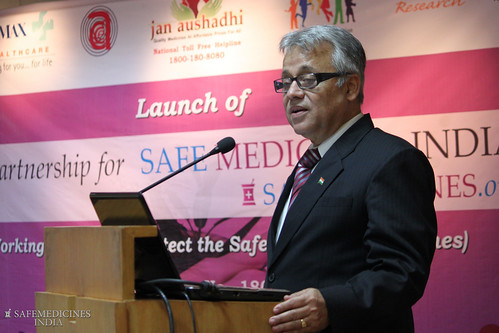India Takes Strong Stance on Spurious Medicines
With 80-90% of anti-malarial and anti-retro viral drugs world wide produced in India, Indian officials and manufacturers are combining efforts to crack down on spurious medicine producers that kill 100,000 people in Africa annually .
Paul Lavlani, Dean of the Empower School of Health, says that $5bn is invested by big donor funds in anti-malarial and anti-retro virual drugs that are predominantly made by Indian companies, reports the BBC.
He says, “80-90% of this comes from India. Drug makers impact the lives of over 6m people around the world who are on anti-retro viral drugs and 200m people on anti-malarials.”
With low manufacturing costs, Indian authorities realize spurious medicine makers have a low barrier for entry into the fake medicine manufacturing market and has launched a campaign that regularly raids producers, though it is increasing difficult to spot fakes.
Packaging of spurious drugs can look identical to authentic products, which means that consumers are often at a loss to know whether their medicines are safe.
Says Deputy Drug Control General of India, Dr. D Roy, “This is how consumers are deceived.
“Retailers too would find it difficult to identify a fake. The packaging industry is not regulated by us. The need of the hour is to evolve a more holistic approach that ensures involvement of all stakeholders in the supply chain.”
Government agents are using testing laboratories to verify authenticity and prosecute spurious drug makers, and manufacturers are installing 2D bar codes and scratch-off labels on medicine packages that contain authentication codes which can be verified via free text message directly from manufacturer to consumer at the time of purchase.
“So it’s important for India to reassure consumers worldwide of the safety and credibility of drugs made here.”
The World Trade Organizations says that fake anti-malaria drugs kill 100,000 Africans per year, reports the BBC.
Partnership for Safe Medicines India founder Bejon Misra says that spurious drugs increase the cost of health care.
“In the perennial search for new drugs to tackle viruses and bacteria that are constantly mutating and developing resistance to current medications, the pharmaceutical industry spends billions of dollars every year towards research and development.
“If we fail to reduce the menace of spurious medicines, the cost towards health care can increase phenomenally.”
